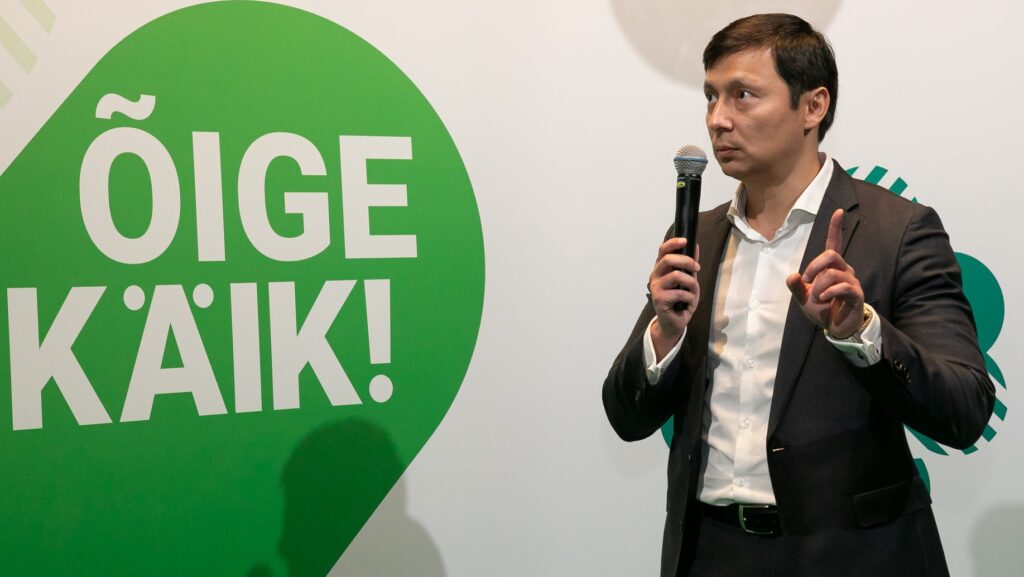Following the local elections in Estonia on 17 October, the Estonian Centre Party has for the first time in 16 years lost the absolute majority in the Tallinn City Council, in the Estonian capital – the party won 38 seats in the 79-seat council, two short of majority; meanwhile, the populist Estonian Conservative People’s Party, known for its acronym, EKRE, won almost as many local council seats across the country as the Reform Party – the party of the current prime minister, Kaja Kallas.
The Centre Party, led in Tallinn by mayor Mihhail Kõlvart, achieved a better result than anticipated by the preceding public opinion polls – some predicting as few as 33 seats for the party – but it still fell short of the absolute majority the party has had since the 2005 local elections. This means the centre-left leaning party will have to form a coalition with one of the other parties in the city council.
In Tallinn, the centre-right Reform Party became second, with 15 seats (losing three seats in comparison with the 2017 local election), while Estonia 200 – a party that was formed just before the 2019 general election and narrowly missed the five per cent vote threshold needed to get elected to the Estonian parliament – was for the first time elected to the Tallinn City Council with seven seats.
The Social Democrats won six seats (a loss of three) and right-wing Isamaa five (the same as in 2017). While EKRE gained local council seats across Estonia, it fell short of its expectations in Tallinn, winning just eight seats (two more than in 2017).
The Social Democrats wiped out across Estonia
The Estonian Greens yet again failed, just like in 2017 – the party received just over 4,000 votes in Tallinn that accounted for 2.2 per cent of all votes cast in the nation’s capital, well below the five per cent threshold needed to get elected. That’s less votes than the party received in 2017.
Estonia 200 was successful in Tartu, where the party received 15.9 per cent of all votes cast – the third best result, after the Reform Party and EKRE, in Estonia’s second largest town. However, elsewhere, Estonia 200 achieved a little success – it missed the threshold in Pärnu, for example – in total, the party has 41 councillors across the country.

The biggest loser of the local elections were the Social Democrats – the party was essentially wiped out in most places, except in Hiiumaa island and the town of Võru, where it won. Across Estonia, the Social Democrats lost 103 councillors and in Pärnu, the party didn’t even cross the five per cent threshold.
Across Estonia, the voter turnout was just 54,7 per cent, marginally higher than at the last local elections in 2017. In total, 588,832 people voted in person and online (a record of 275,587 people cast their vote online).
EKRE is the biggest winner
While the populist EKRE, led by the father-and-son duo of Mart and Martin Helme, failed to win much ground in Tallinn, it achieved huge gains elsewhere in the country. The party won an additional 155 seats in councils and now has a total of 242 councillors across the country (Estonia has 1,717 councillors in total, in 79 municipalities).
In comparison, the Centre Party and the Reform Party both lost almost 50 councillors. The Centre Party now has 248 and the Reform Party 244 councillors, meaning EKRE is on a local level for the first time almost on par with the two largest parties in Estonia.

Shockingly for some, not surprisingly for others – judging by the reaction in the social media – EKRE won in Pärnu, the country’s fourth largest and arguably, the third most important, town. The party received over 24 per cent of all votes cast there (10 seats in a 39-seat council) and has a shot at forming the municipal government.
EKRE has for years cultivated Pärnu as one of its voter bases, has actively campaigned and held many events here since the party’s founding in 2012. The party’s former leader, Mart Helme, was born in Pärnu and was elected to the parliament from here.
In Estonia, EKRE is known for its often aggressive anti-establishment rhetoric, euroscepticism and xenophobic and homophobic views.
Cover: Mihhail Kõlvart, the mayor of Tallinn, at the Centre Party’s local elections afterparty on 17 October 2021; Kõlvart received over 27,000 votes in Tallinn’s Lasnamäe district, a record number in the 2021 local elections. Photo by the Centre Party.


Where does the ekre get its money from? They seem to very well resourced